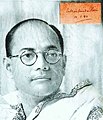Wikipedia:Selected anniversaries/May 3
This is a list of selected May 3 anniversaries that appear in the "On this day" section of the Main Page. To suggest a new item, in most cases, you can be bold and edit this page. Please read the selected anniversaries guidelines before making your edit. However, if your addition might be controversial or on a day that is or will soon be on the Main Page, please post your suggestion on the talk page instead.
Please note that the events listed on the Main Page are chosen based more on relative article quality and to maintain a mix of topics, not based solely on how important or significant their subjects are. Only four to five events are posted at a time and thus not everything that is "most important and significant" can be listed. In addition, an event is generally not posted this year if it is also the subject of the scheduled featured article or picture of the day.
To report an error when this appears on the Main Page, see Main Page errors. Please remember that this list defers to the supporting articles, so it is best to achieve consensus and make any necessary changes there first.
Images
Use only ONE image at a time
-
The original of "The Constitution of the State of Japan"
-
Suomenlinna in 2005
-
Subhas Chandra Bose
-
Raja Harishchandra screenshot
-
Battle of Tolentino
-
Frederick Bianchi, Duke of Casalanza
-
Aerial view of RAF Northolt, 1917
Ineligible
| Blurb | Reason |
|---|---|
| 1808 – Finnish War: Sweden lost the fortress of Suomenlinna to Russia. | needs more footnotes |
| 1815 – Austrian troops led by Frederick Bianchi, Duke of Casalanza defeated the forces under King Joachim Murat of Naples at the Battle of Tolentino, the decisive battle of the Neapolitan War. | no footnotes |
| 1837 – The National and Kapodistrian University of Athens, the oldest university in Southeast Europe, was founded. | refimprove section |
| 1947 – A new Constitution of Japan went into effect, providing for a parliamentary system of government, guaranteeing certain fundamental rights, and relegating the Japanese monarchy to a purely ceremonial role. | refimprove section |
Eligible
- 1791 – The Polish–Lithuanian Constitution of May 3, the oldest codified national constitution in Europe, was adopted by the Great Sejm.
- 1913 – Raja Harishchandra, the first full-length Indian feature film, was released.
- 1915 – The oldest continually operational Royal Air Force station, RAF Northolt, opened as the home to No. 4 Reserve Aeroplane Squadron.
- 1920 – Relying on the 11th Soviet Red Army operating in neighboring Azerbaijan, Bolsheviks attempted to stage a coup d'etat in Georgia.
- 1939 – Subhas Chandra Bose formed the All India Forward Bloc of the Indian National Congress in opposition to Gandhi's tactics of nonviolence.
- 1942 – Second World War: Japanese forces began invading Tulagi and nearby islands in the Solomon Islands, enabling them to threaten and interdict the supply and communication routes between the United States and Australia and New Zealand.
- 1951 – The Royal Festival Hall, the first post-war building to become listed Grade I, opened as the venue for the Festival of Britain.
- 1960 – The Off-Broadway musical The Fantasticks made its premiere, eventually becoming the world's longest-running musical.
- 2000 – The sport of geocaching was born when the coordinates of a cache outside Portland, Oregon, US, were posted to a Usenet group.
Notes
- United Kingdom general election, 1979 is saved for May 4, the date of Margaret Thatcher officially becoming Prime Minister
May 3: World Press Freedom Day; Pesach Sheni (Judaism, 2015); Mother's Day in Hungary, Lithuania, Mozambique, Portugal, Romania and Spain (2015); Constitution Day in Poland (1791) and Japan (1947)
- 1491 – Nkuwu Nzinga of the Kingdom of Kongo was baptised as João I (pictured) by Portuguese missionaries.
- 1855 – American adventurer William Walker and a group of mercenaries sailed from San Francisco to conquer Nicaragua.
- 1915 – Canadian physician and Lieutenant Colonel John McCrae wrote "In Flanders Fields", later considered one of the most notable poems written during the First World War.
- 1945 – Second World War: German ocean liner Cap Arcona, left to float defencelessly in the Bay of Lübeck with thousands of prisoners from various concentration camps on board, was attacked and sunk by RAF Typhoons.
- 1963 – Police in Birmingham, Alabama, used high-pressure water hoses and dogs on civil rights protesters, bringing intense scrutiny on racial segregation in the southern US.








